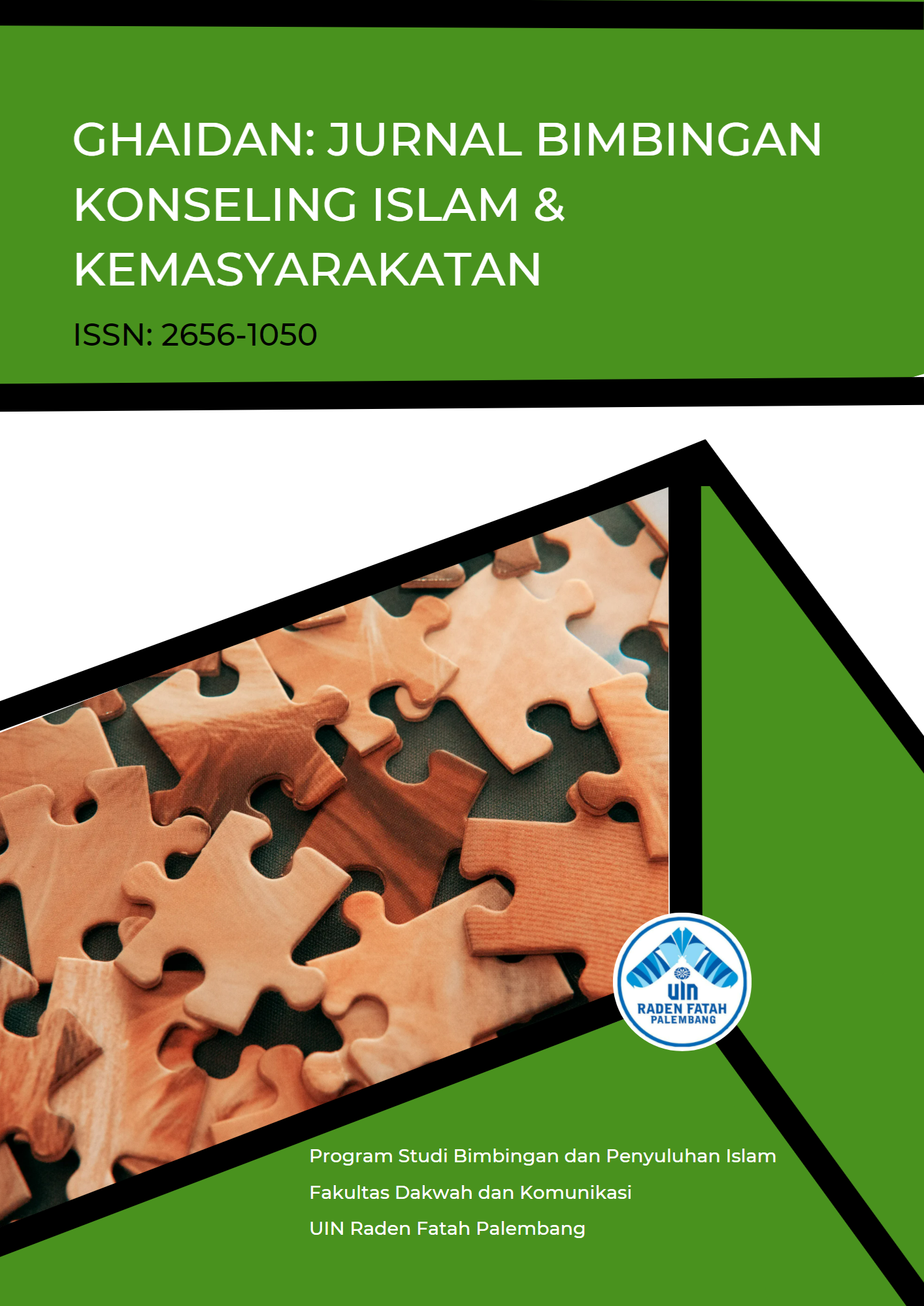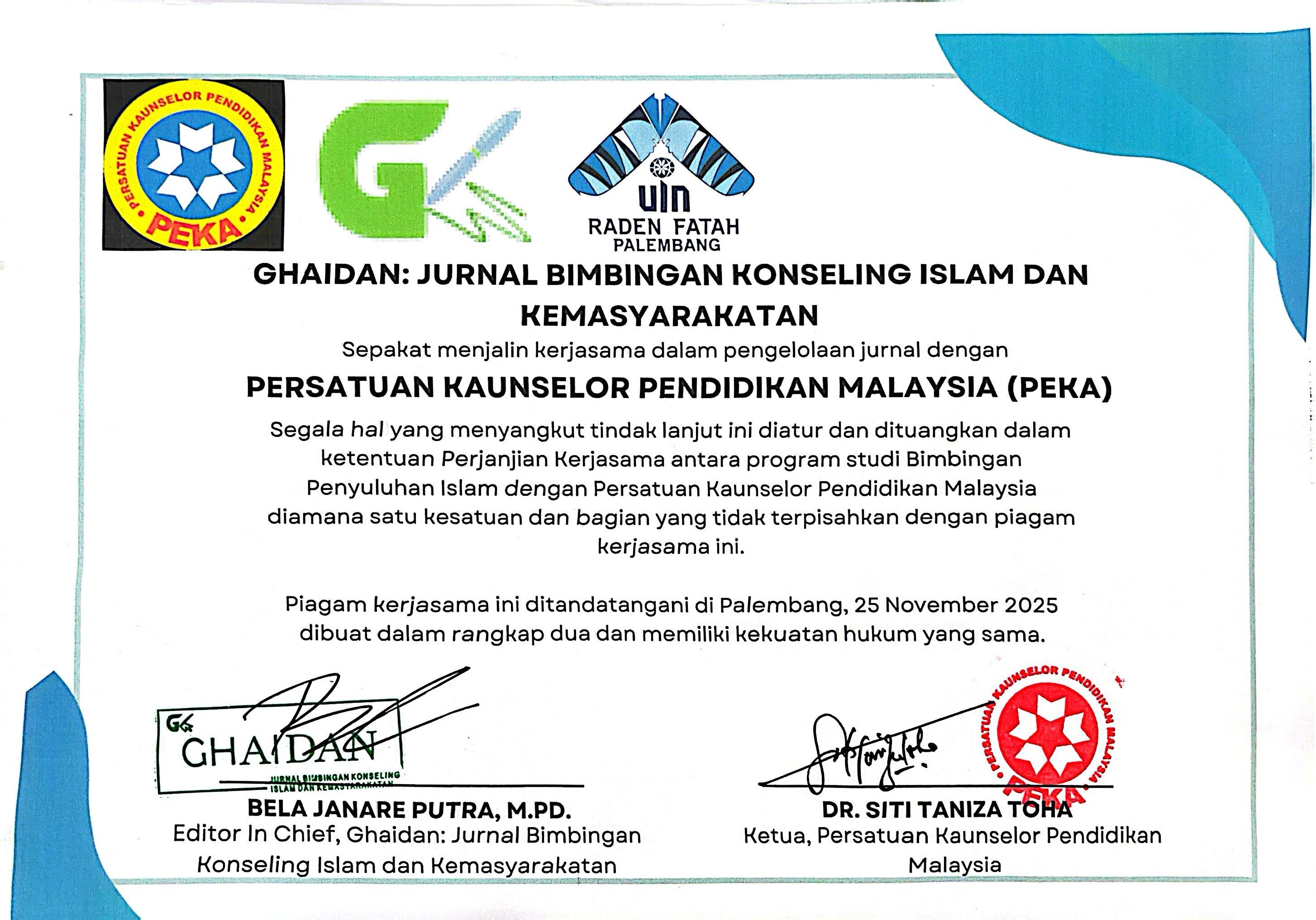Upaya Penyuluhan Siber Pada Penyuluh Agama Kota Semarang Pada Masa Pandemi
DOI:
https://doi.org/10.19109/kz3hct03Abstract
Religious counselor are extension workers who carry out counseling in religious language where the counseling carried out is the implementation of national development. Changes in performance and extension services during the pandemic shifted to using cyber media, where cyber media is media related to computer and information systems with information dissemination in the implementation of the extension carried out. The research conducted by the author is using exploratory qualitative, where the author wants to find cyber counseling efforts carried out by the Semarang City Religious Counselor. The results of the research conducted showed that the implementation of information dissemination carried out by religious instructors was carried out in three ways including: 1. Face-to-face media by visiting the Ministry of Religion or the local KUA, 2 Cyber media through the Ministry of Religion website and YouTube media in the dissemination of information carried out and 3. Blended in counseling services carried out with the community through social media. Cyber extension efforts carried out by religious counselor have not been optimal as for the causes including: 1. The implementation of cyber counseling is self-taught and has not been coordinated and has become part of the extension innovation, 2 Lack of extension resources, 2 Limited skills possessed by extension workers because they are still limited in task performance administrative
References
Achour, M., Souici, D. Y., Bensaid, B., Ahmad Zaki, N. B., & Abdullah Al-Nahari, A. A. (2021). Coping With Anxiety During the COVID-19 Pandemic: A Case Study of Academics in the Muslim World. Journal of Religion and Health. https://doi.org/10.1007/s10943-021-01422-3
Angeline, M., Safitri, Y., & Luthfia, A. (2020). Can the Damage Be Undone? Analyzing Misinformation During COVID-19 Outbreak in Indonesia. https://doi.org/10.1109/icimtech50083.2020.9211124
Boguszewski, R., Makowska, M., & Podkowińska, M. (2022). Changes in Intensification of Religious Involvement During the COVID-19 Pandemic in Poland. Plos One. https://doi.org/10.1371/journal.pone.0269015
Bridgman, A., Merkley, E., Loewen, P. J., Owen, T., Ruths, D., Teichmann, L., & Zhilin, O. (2020). The Causes and Consequences of COVID-19 Misperceptions: Understanding the Role of News and Social Media. HKS Misinfo Review. https://doi.org/10.37016/mr-2020-028
Ferrara, E., Cresci, S., & Luceri, L. (2020). Misinformation, Manipulation, and Abuse on Social Media in the Era of COVID-19. Journal of Computational Social Science. https://doi.org/10.1007/s42001-020-00094-5
Fitri, K., & Nurjanah, N. (2023). Pengaruh Komunikasi Penyuluhan Terhadap Perubahan Perilaku Melalui Peningkatan Pengetahuan Perilaku Hidup Bersih Dan Sehat (PHBS) Di Lingkungan Sekolah SMA Negeri 1 Pekanbaru. https://doi.org/10.35967/jkms.v12i2.7533
Galiatsatos, P., Monson, K., Oluyinka, M. J., Negro, D. R., Hughes, N., Maydan, D., Golden, S. H., Teague, P., & Hale, W. D. (2020). Community Calls: Lessons and Insights Gained From a Medical–Religious Community Engagement During the COVID-19 Pandemic. Journal of Religion and Health. https://doi.org/10.1007/s10943-020-01057-w
Greene, T., Bloomfield, M., & Billings, J. (2020). Psychological Trauma and Moral Injury in Religious Leaders During COVID-19. Psychological Trauma Theory Research Practice and Policy. https://doi.org/10.1037/tra0000641
Halim, A., & Hosen, N. (2021). Changing the Religiosity of Indonesian Muslims in the New Normal Era. Wawasan Jurnal Ilmiah Agama Dan Sosial Budaya. https://doi.org/10.15575/jw.v6i1.13445
Hasanah, F., Hadi, N., & Widianto, A. A. (2021). Covid Adalah Pageblug: Makna Dan Respon Masyarakat Terhadap Pandemi Di Desa Pancasila, Sukoreno Jember. Jurnal Integrasi Dan Harmoni Inovatif Ilmu-Ilmu Sosial (Jihi3s). https://doi.org/10.17977/um063v1i5p666-680
Hefni, W. (2020). Moderasi Beragama Dalam Ruang Digital: Studi Pengarusutamaan Moderasi Beragama Di Perguruan Tinggi Keagamaan Islam Negeri. Jurnal Bimas Islam. https://doi.org/10.37302/jbi.v13i1.182
LePrevost, C. E. (2024). Community Health Worker Outreach to Farmworkers in Rural North Carolina: Learning From Adaptations to the SARS‐CoV‐2 Pandemic. Health Expectations. https://doi.org/10.1111/hex.14047
Pearce, E., Birken, M., Pais, S., Tamworth, M., Ng, Y., Wang, J., Chipp, B., Crane, E., Schlief, M., Yang, J., Stamos, A., Cheng, L. K., Condon, M., Lloyd-Evans, B., Kirkbride, J. B., Osborn, D., Pitman, A., & Johnson, S. (2023). Associations between constructs related to social relationships and mental health conditions and symptoms: an umbrella review. In BMC Psychiatry (Vol. 23, Issue 1). https://doi.org/10.1186/s12888-023-05069-0
Ruiz, F. J., Luciano, C., Flórez, C. L., Suárez-Falcón, J. C., & Cardona-Betancourt, V. (2020). A Multiple-Baseline Evaluation of Acceptance and Commitment Therapy Focused on Repetitive Negative Thinking for Comorbid Generalized Anxiety Disorder and Depression. Frontiers in Psychology, 11(March), 1–16. https://doi.org/10.3389/fpsyg.2020.00356
Syah, R. (2023). Strategi Kepolisian Dalam Pencegahan Kejahatan Phising Melalui Media Sosial Di Ruang Siber. Jurnal Impresi Indonesia. https://doi.org/10.58344/jii.v2i9.3594
Umer, H. (2023). Investigating the Relationship of COVID-19 Preventive and Mitigation Measures With Mosque Attendance in Pakistan. Plos One. https://doi.org/10.1371/journal.pone.0294808
Zhou, X., Edirippulige, S., Bai, X., & Bambling, M. (2021). Are online mental health interventions for youth effective? A systematic review. Journal of Telemedicine and Telecare, 27(10), 638–666. https://doi.org/10.1177/1357633X211047285
Downloads
Published
Issue
Section
License
Copyright (c) 2024 Ulin Nihayah

This work is licensed under a Creative Commons Attribution-ShareAlike 4.0 International License.





